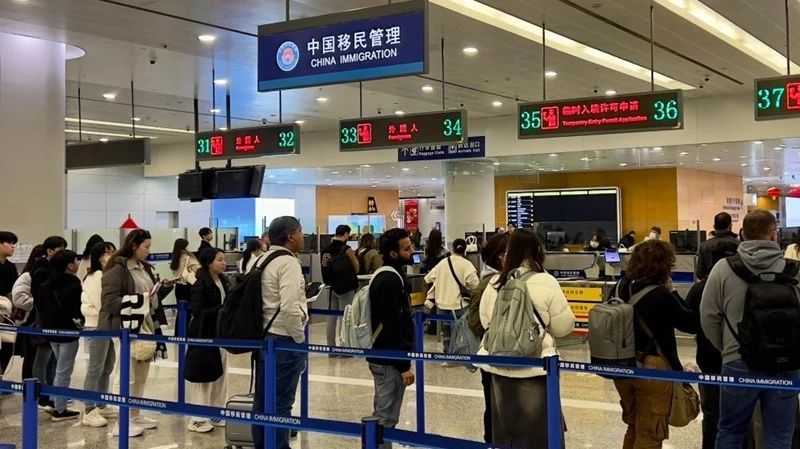
Airports all over China have witnessed a rise in the number of foreign passengers. This is due to the 240 – hour visa – free transit policy that was put into effect three months ago.
According to the Shanghai Airport Border Inspection Station, as of Monday, over 11,000 foreign passengers have made use of the 240 – hour transit visa – free policy at Shanghai Pudong International Airport. This represents a 52% growth compared to the number of travelers who availed of the previous 144 – hour visa – free policy last year.
Entry – exit inspection data from Qingdao airport indicated that since December 17, 2024, the number of foreign passengers entering and leaving Qingdao airport has exceeded 226,000, showing a year – on – year increase of 51.6%. Among them, from January 1 to March 16, 2025, more than 89,000 foreigners entered through Qingdao airport, with a year – on – year growth of 44.7%.
On December 17, 2024, China announced a major relaxation of its visa – free transit policy. The permitted stay for eligible foreign travelers was extended from the original 72 and 144 hours to 240 hours, which is 10 days.
Moreover, as per a statement from the National Immigration Administration, 21 additional ports were designated for visa – free entry and exit, and the areas where transit travelers can stay have been broadened.
Currently, China provides unilateral visa – free access to 38 countries and 240 – hour transit exemptions for 54 countries. In 2024, over 20 million foreign travelers entered China visa – free, a 112% year – on – year increase. Among them, more than 3.39 million came to China under the unilateral visa – free policy, with a year – on – year growth of 1200%, as reported by the Chinese Foreign Ministry on Thursday.
On Sunday, China released a plan that details special measures to promote domestic consumption.
As reported by Xinhua News Agency, the plan, issued by the General Office of the Communist Party of China Central Committee and the General Office of the State Council, aims to vigorously promote consumption, stimulate domestic demand, and enhance the spending ability by increasing incomes and reducing financial burdens.
The 30 – point plan focuses on expanding inbound consumption. Specifically, it intends to gradually increase the number of countries with unilateral visa – free access and optimize and improve regional entry visa – free policies.
Fu Jinling, an official from the Ministry of Finance, stated on Monday that the central government will offer subsidies and incentives to support China’s international consumption hubs and key commercial cities, improve the convenience and comfort of inbound consumption, and expand the supply of high – quality goods and services for foreign visitors.


